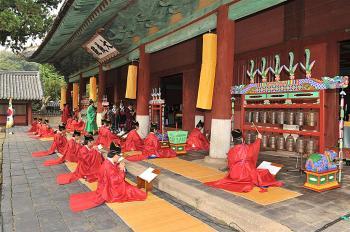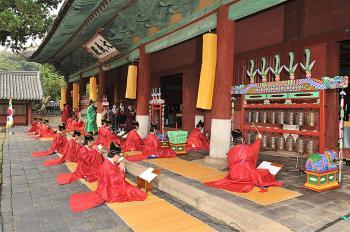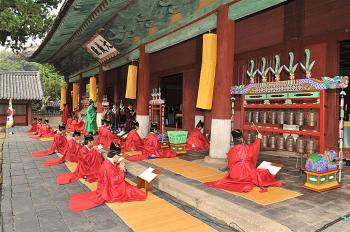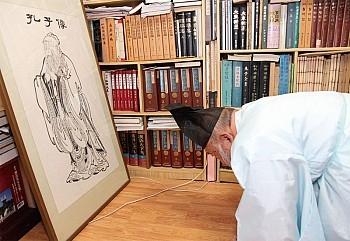September 28, 2009 marked the 2560th anniversary of Confucius’ birthday. As has been customary now for over one thousand years, Seokjeon-daejae, the special event that pays tribute to Confucius, was held in Sungkyunkwan, now a renowned Confucianism research and education center in South Korea, to commemorate the anniversary.
South Korea Celebrates the 2560th Anniversary of Confucius’ Birthday
South Korea held its annual event, Seokjeon-daejae, to honor Confucius on the anniversary of his birth.

South Korea commemorates the 2560th anniversary of Confucius' birthday. Zheng Renquan/The Epoch Times
|Updated:





